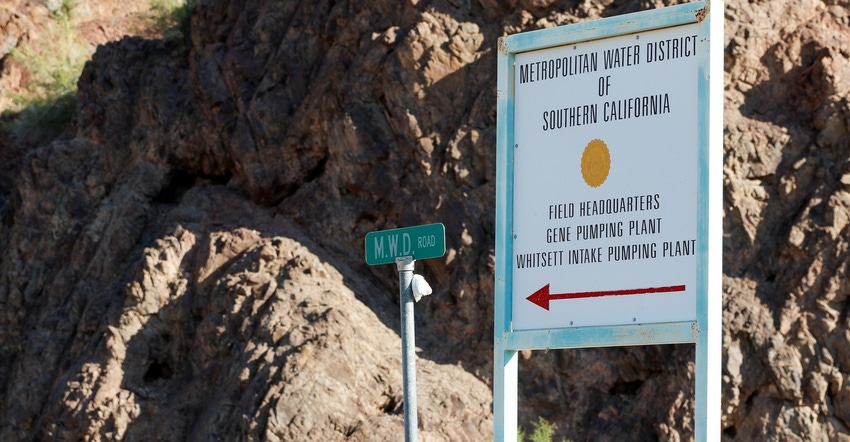
At the risk of repeating myself and raising the ire of friends on the California side of the Colorado River, a story out of the LA Times illustrates what I’ve been saying for some time now: it’s time to remove California’s access to the famed river. We’ve exhausted our options through political inaction and misguided assumptions.
The Times reports that the Bureau of Reclamation says upwards of four million acre-feet of water deliveries must be cut from the Colorado River to prevent the draining of lakes Mead and Powell. Decisions will be made soon as to who gets cut, and by how much. California seems like an obvious place to make the first cut.
California is entitled to 4.4 million acre-feet of the river – the most of the lower basin states with straws in the system. Arizona is entitled to 2.8 million acre-feet annually. Nevada is entitled to 300,000 acre-feet. Is that fair?
Related: Western water, power in short supply this summer
Maybe it was when the Colorado River Compact was signed 100 years ago. It isn’t anymore. California may still have more residents and voters than Arizona and Nevada, but last I looked, the primary source of water for the two smaller states is the Colorado River. California, with its 800 miles of Pacific shoreline that is ripe for desalination plants (I hear the state has a massive budget surplus it’s looking to spend), also has access to Sierra and Cascade watersheds. It’s time for California to live within its means and stop robbing from its neighbors.
What about California’s water rights to the Colorado, you ask? Those aren’t the state’s rights; those belong to California farmers in the Imperial and Palo Verde valleys. What would happen tomorrow if those farmers decided against selling their water to places like Metropolitan Water District (MWD) and San Diego?
Arizona has about seven million residents. Not all of them use the Colorado. Meanwhile, MWD serves about half the state’s population from multiple sources, including the Colorado River. They also get water from the State Water Project and the Eastern Sierra, but those sources have been significantly limited in recent years because of drought and California’s failed water policies.
Related: Nevada water supply faces Colorado River restrictions
The Colorado River remains an easy target for a politically powerful state like California. Desert farmers in Blythe and Imperial, enticed by urban offers to buy their water at high prices, became willing sellers. Rather than toil with low-value crops, farmers with senior rights to the river make easy money by selling their water to MWD. It’s difficult to criticize farmers for those decisions if one supports private property rights.
This should not lessen the need for conversations about agricultural uses. What if those southern California farmers with senior rights to the Colorado told MWD “no” when asked to sell their water? What if they instead used it to grow high-value crops and left the rest of the water behind in Lake Powell and Mead for their neighbors in Arizona and Nevada to use? What if enough of it remained to allow for ample recreation and stable hydroelectric production, which we all need in the West?
What if California was forced to live within its means and make water decisions with its in-state supply, rather than continuing to take water from elsewhere because they have votes and money? Do Arizona and Nevada have the kind of political clout to stand up against California? Maybe it’s time for California’s neighbors in Las Vegas and Phoenix to stand up against this theft of Western water and force a state bent on sustainability to find within itself the will to curtail and conserve its own natural resources to serve its own population.
About the Author(s)
You May Also Like






